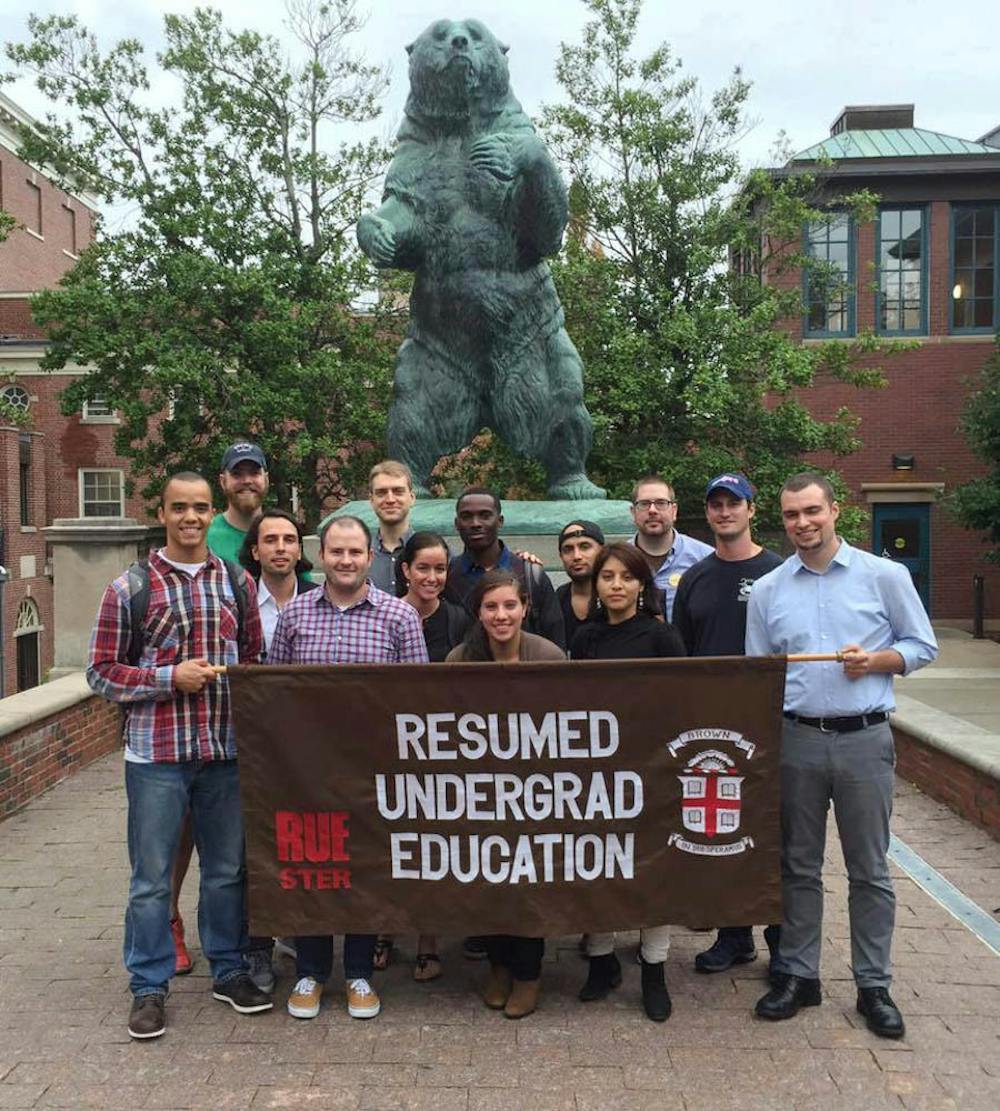An anonymous donor’s 2015 gift of $15 million for the Resumed Undergraduate Education program should allow the program to grow in coming years, said Maitrayee Bhattacharyya, dean of the RUE Program and senior associate dean of diversity and inclusion.
With the donation, $1 million will go toward the RUE’s financial aid program annually for 15 years, Bhattacharyya said. The anonymous gift supplements a 2014 donation from the Bernard Osher Foundation, which was gifted to create an endowment for RUE financial aid. The $15 million gift will not contribute to the RUE financial aid endowment, she said.
The RUE program considers and admits students who are more than six years out of high school and have yet to receive an undergraduate degree, said Akaela Michels-Gualtieri ’20, a RUE student and a member of the University Resources Committee.
Previous to 2015, enrollment averaged five or six RUE students per class, Bhattacharyya said. “With the recent 2014-2015 set of gifts, we have seen an increase to nine or 10 students per class over the last few years.”
“We are aiming to enroll 10 RUE students this cycle” for the 2017-18 academic year and maintain enrollment at that level in coming years, said Peter Newcomb, associate director of admission.
Most RUE students are transfer applicants with an average of one to two years’ worth of college credit, Newcomb said. RUE transfer students go through a need-aware admission process, while first-year RUE applicants with no previous college credit go through a need-blind process, which is consistent with the University’s financial aid policies for all undergraduates, he added.
While RUE transfer applications are technically need-aware, the size of the recent gifts ensures that financial need will not be a major consideration in the application process, Newcomb said.
The University is particularly understanding about financial difficulties for RUE students, Michels-Gualtieri said. RUE financial aid packages have no summer earnings requirement, and the University does not require students to live on campus or have a meal plan, she added.
RUE students can also receive dean approval for tuition reduction, in which students pay for the number of classes taken rather than the standard tuition. For example, Michels-Gualtieri takes three classes this semester and pays tuition for those three, rather than the standard four-course tuition.
Additionally, the Free Application for Federal Student Aid does not require a parental contribution for students over the age of 24, which lessens the financial burden placed students, she said.
For veterans, the University also waives all application fees, said Michael Muir ’20, a veteran of the U.S. Marine Corps.
Financial issues typically concern RUE students because they tend to come from diverse backgrounds in low-paying fields, said Nick Danford ’11.
Danford, a retired ballerina, worked as a waiter before coming to Brown. He applied to the RUE program knowing he could not afford the tuition, and the financial aid offer made it possible for him to attend, he said.
Muir received full-ride financial aid packages from other institutions. After he was accepted to the RUE program, the University worked to meet his financial need and match the packages offered by the other universities, he said.
Though veterans are entitled to funding for a college education through the G.I. Bill, the government funding does not cover the full cost, he added.
The University “recognizes that it’s really hard for you to come back … and everyone’s rooting for you to succeed,” Michels-Gualtieri said.
There are “trapeze artists and soccer players and ballet dancers and moms and dads” in the RUE program, and they make up an eclectic mix of “incredible people with crazy stories,” Danford said.
Interacting with undergraduates has not been as difficult as he expected, said Jonathan Weiskoff ’18. “The social environment has been ideal,” he added.
Teachers love having RUE students in the classroom because their life experiences enhance the discussion, Michels-Gualtieri said.
Some students end up more engaged when RUE students are a part of the discussion. “When I’m in classes … and I start talking about my life experience prior to coming to Brown, … some students really start listening,” Muir said. The school benefits from veterans’ presence on campus, while veterans benefit from the University, he added.
Eleven veterans are currently enrolled at the University, and “Brown is trying to get ahead of the curve,” Muir said. The University has been especially trying to revamp veteran enrollment by actively recruiting returned soldiers, The Herald previously reported. “It’s almost like a badge of honor to say I’m a RUE student,” he said.
Yale, Tufts University, Wellesley College and Bryn Mawr College are the only other schools with programs comparable to RUE, Michels-Gualtieri said.
Correction: A previous version of this article stated that Akaela Michels-Gualtieri ’20 said that Wesleyan College is one of the only other schools with a comparable RUE program. In fact, she said Wellesley College is one of the only other schools with a comparable RUE program. The Herald regrets the error.





